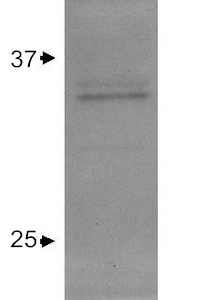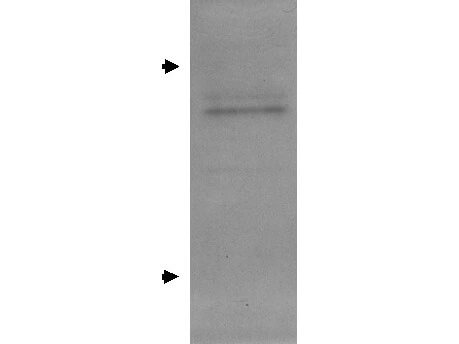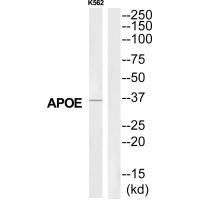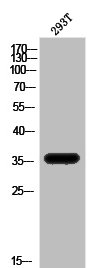
WB analysis lot of rat glial lysate (40 μg) using Apolipoprotein E antibody at a dilution of 1:1000.
Apolipoprotein E antibody
GTX27620
ApplicationsImmunoPrecipitation, Western Blot, ELISA, ImmunoHistoChemistry
Product group Antibodies
ReactivityHuman, Rat
TargetAPOE
Overview
- SupplierGeneTex
- Product NameApolipoprotein E antibody
- Delivery Days Customer9
- Application Supplier NoteWB: 1:500-1:2000. IP: 1:100. ELISA: 1:4000-1:8000. IHC: 1:50-1:200. *Optimal dilutions/concentrations should be determined by the researcher.Not tested in other applications.
- ApplicationsImmunoPrecipitation, Western Blot, ELISA, ImmunoHistoChemistry
- CertificationResearch Use Only
- ClonalityPolyclonal
- Concentration1 mg/ml
- ConjugateUnconjugated
- Gene ID348
- Target nameAPOE
- Target descriptionapolipoprotein E
- Target synonymsAD2, APO-E, ApoE4, LDLCQ5, LPG, apolipoprotein E, apolipoprotein E3
- HostGoat
- IsotypeIgG
- Protein IDP02649
- Protein NameApolipoprotein E
- Scientific DescriptionAt least 9 distinct polymorphic forms of apolipoproteins are known. The apolipoproteins act as stabilizers of the intact lipoprotein particles. Quantitative measurements of HDL, LDL and VLDL particles in human serum are often used to estimate an individuals relative risk of coronary heart disease. In addition, quantitative immunological measurements of certain apolipoproteins (especially A-1 and B) have been suggested to be more accurate estimators of coronary heart disease than measurements of lipoprotein particles (especially HDL and LDL). The apolipoproteins are derived from human plasma by density gradient ultracentrifugation and HPLC.
- ReactivityHuman, Rat
- Storage Instruction-20°C or -80°C,2°C to 8°C
- UNSPSC41116161









